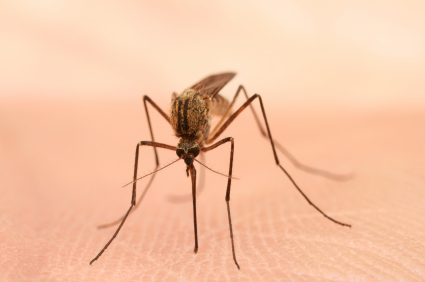AARP Hearing Center

It’s summertime in Massachusetts and the livin’ is … indoors? With biting mosquitoes everywhere and the first death of a Massachusetts resident who contracted Eastern Equine Encephalitis (EEE)—a virus transmitted to humans and animals by infected mosquitoes—the outdoors can seem like a frightening place.
The Massachusetts Department of Public Health (DPH) announced Tuesday that the woman, a Weymouth resident in her 80s, was hospitalized earlier this month and died a few days later.
The first EEE-carrying mosquitoes were found in Massachusetts this year in July in the town of Amherst, according to the DPH. Last year, the state agency reported seven confirmed cases of EEE among Massachusetts residents.
“Our condolences go out to this individual’s family and friends,” said DPH Commissioner Cheryl Bartlett. “This underscores the serious nature of EEE and the need for vigilance. While the investigation is ongoing, this is a reminder to continue to use personal protection against mosquito bites, including covering exposed skin when outdoors, limiting outdoor activities between dusk and dawn, and using approved insect repellants.”
Instead of staying indoors 24/7, however, people of all ages should take the following precautions as recommended by the DPH:
Avoid Mosquito Bites
- Apply Insect Repellent when Outdoors: Use a repellent with DEET (N, N-diethyl-m-toluamide), permethrin, picaridin (KBR 3023), oil of lemon eucalyptus [p-methane 3, 8-diol (PMD)] or IR3535 according to the instructions on the product label. DEET products should not be used on infants under two months of age and should be used in concentrations of 30% or less on older children. Oil of lemon eucalyptus should not be used on children under three years of age.
- Be Aware of Peak Mosquito Hours: The hours from dusk to dawn are peak biting times for many mosquitoes. Consider rescheduling outdoor activities that occur during evening or early morning
- Clothing Can Help Reduce Mosquito Bites: Wearing long-sleeves, long pants and socks when outdoors will help keep mosquitoes away from your skin.
Mosquito-Proof Your Home
- Drain Standing Water: Mosquitoes lay their eggs in standing water. Limit the number of places around your home for mosquitoes to breed by either draining or discarding items that hold water. Check rain gutters and drains. Empty any unused flowerpots and wading pools, and change water in birdbaths frequently.
- Install or Repair Screens: Keep mosquitoes outside by having tightly-fitting screens on all of your windows and doors.
Protect Your Animals
- Empty Containers of Standing Water: Animal owners should reduce potential mosquito breeding sites on their property by eliminating standing water from containers such as buckets, tires, and wading pools – especially after heavy rains.
- Flush Drinking Troughs: Water troughs provide excellent mosquito breeding habitats and should be flushed out at least once a week during the summer months to reduce mosquitoes near paddock areas.
- Horses in Indoor Stalls: Horse owners should keep horses in indoor stalls at night to reduce their risk of exposure to mosquitoes.
If Your Pet or Other Animal is Diagnosed with EEE
If an animal is diagnosed with EEE (or West Nile Virus), owners are required to report to Department of Agriculture (DAR), Division of Animal Health by calling 617-626-1795 and to the Department of Public Health (DPH) by calling 617-983-6800.
More information, including all WNV and EEE positive results in Massachusetts from 2013, can be found on the Arbovirus Surveillance Information web page at www.mass.gov/dph/mosquito or by calling the DPH Epidemiology Program at 617-983-6800.
DPH has produced a series of 30-second videos on how to prevent mosquito and tick bites and the illnesses that can result. All videos can be found at www.mass.gov/MosquitoesAndTicks.































































